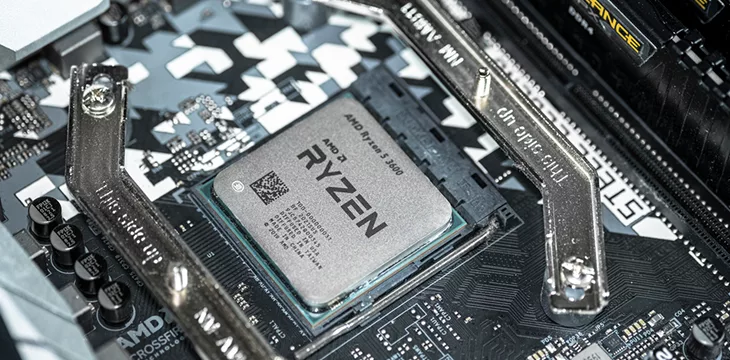|
Getting your Trinity Audio player ready...
|
U.S. chip-making giant Advanced Micro Devices (NASDAQ: AMD) is betting on artificial intelligence (AI) personal computers (AI PCs) in its rivalry for AI supremacy with
Nvidia (NASDAQ: NVDA) and Intel (NASDAQ: INTC).
AI PCs come with a neural processing unit dedicated to running AI programs, from cracking complex algorithms to processing large language models (LLMs). With AI adoption soaring, analysts expect the technology’s integration into PCs to revive a sector that has been gradually fizzling out. According to one report, two-thirds of PCs sold in 2027 will be AI-capable, and AMD says it’s well-equipped to leverage this growth in its competition with Nvidia and Intel.
“We are seeing AI PCs becoming a bigger factor, and we have a good lead in AI PCs with the recent announcements … I think we’re extremely well positioned, both in AI and in other traditional businesses,” AMD CEO Victor Peng said in a recent interview.
In its Q4 earnings report, AMD announced that its Ryzen line of CPUs dominates the market, powering over 90% of AI-enabled PCs.
However, while it has the first-mover advantage, its rivals are closing in. A month ago, Nvidia announced a new line of GPUs targeting the PC market. The $1.6 trillion company, the runaway market leader in AI chip manufacturing, said Dell (NASDAQ: DELL), HP (NASDAQ: HPQ), Asus (NASDAQ: ASUUY), Samsung and other leading PC makers would use its new line of chips.
In its ‘AI Everywhere’ event in December, Intel also launched its Intel Core Ultra line of processors, which it says is being used by PC makers, including Lenovo (NASDAQ: LNVGF), Acer (NASDAQ: ACEYY), Google (NASDAQ: GOOGL) Chromebook, and Samsung. While announcing the new processors, Intel estimated that 80% of PCs sold in 2028 will be AI-enabled.
As AI adoption takes root, the three giants will continue to compete for market share in chip production, servers, and data center GPUs. As AMD’s Peng said, “…as large as the opportunities already are, we’re still in the early innings of AI.”
In order for artificial intelligence (AI) to work right within the law and thrive in the face of growing challenges, it needs to integrate an enterprise blockchain system that ensures data input quality and ownership—allowing it to keep data safe while also guaranteeing the immutability of data. Check out CoinGeek’s coverage on this emerging tech to learn more why Enterprise blockchain will be the backbone of AI.
Watch: IEEE COINS Conference—Intersection of AI & blockchain

 02-13-2026
02-13-2026 




